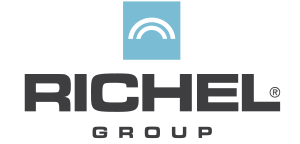Get in contact
Typically, Enerdes advises using water sterilizers that operate on a heat source.
The advantages of a sterilizer based on heat treatment are for example:
- All germs, pathogens, microbes and algae are killed
- Most reliable water treatment process
- Temperature and residence time are easily controllable
- It is not a chemical treatment
- Organic substances nitric acid and lye are dosed to achieve the desired pH value for your crops
Compared to other water disinfection processes like UV sterilization or ozone sterilization, water heat treatment (also called heat pasteurization) is a much more reliable process. The components used in our sterilizers are very robust and reliable. The process kills more than 99.9 % of all pathogens present in the water. Only for smaller volumes, Enerdes might recommend an ultraviolet water sterilizer.
With an Enerdes heat sterilizer, you will always have clean, safe and sterile irrigation water available for your plants. Enerdes can build a water sterilizer in any size. When talking about a sterilizer size, the amount of water that can be sterilized per hour is mostly indicated.
Some standard water sterilizer sizes (water volume that is disinfected per hour) are:
- 10 m3/h
- 25 m3/h
- 40 m3/h
- 50 m3/h
How it works: Water Sterilizer for microorganisms
With recirculation of drain water, the risk of spread of bacteria, fungi and viruses arises. A drain water sterilizer can limit this spread. A sterilizer kills the bacteria, fungi and viruses that are harmful to your plants. At the same time, the sterilizer preserves the oxygen and the fertilizer (the nutrients) in the water.
Enerdes water sterilizers can save you a vast amount of water and money every year.
How a water sterilizer works:
- Water is acidified to a pH of approx. 4.5
- The drain water is heated quickly to a minimum of 85°C, at least 3 times
- 99.9% of the viruses and bacteria are killed
- The drain water is cooled down and neutralized to a pH of approx. 7
- The sterile water can be used for irrigation
Water must be acidified before it is heated otherwise the heat exchanger would quickly be filled with calcium deposits. After this, the water is heated up until all pathogens and microbes are killed. Before the water can be used as sterile irrigation water, it must be cooled down sufficiently and it must be neutralized to a pH of approximately 7 again. After this, the water is perfectly safe to use. Additional nutrients and fertilizer can be added for the plants, and the sterile irrigation water is distributed over the greenhouse.
Responsible drain water sterilizer
To increase the efficiency of the sterilizer, the heat which is released during the cooling of the sterilized water is being used to:
- heat up cold supply water
- heat polluted water
This reduces the energy consumption to a minimum.
Efficient use of water in a greenhouse irrigation system
One of the challenges of modern greenhouses is the efficient use of water.
Re-use of drain water has two major benefits:
- Financial benefits
By recycling drain water, you save water and fertilizers. Less fresh water is required for irrigation and nutrients that have not been absorbed by plants are still present in the collected water. They are preserved during the sterilization process and presented to the plants again during the next irrigation round. - Environmental benefits
Water is one of the most important raw materials in the horticulture industry. However, water is a precious commodity that will be even scarcer in the future. By efficiently re-using drain water, a greenhouse irrigation system poses less of a burden on the environment.
For modern greenhouses, the greenhouse irrigation system is an intricate system with a complex infrastructure. Especially for greenhouses with a hydroponic system, irrigation water treatment is quite essential. After the irrigation system lay out has been designed and installed in the greenhouse, Enerdes takes care of the sterilization. With the growing desire to recycle water and reuse irrigation water, sterilization or disinfection of the irrigation water has become important for modern greenhouses.
UV Water Sterilizer – short for Ultraviolet Sterilizer
Some greenhouse companies prefer to use a UV sterilizer. Heat treatment sterilizers are especially suitable for large volumes of irrigation water that need to be disinfected.
For smaller volumes, an ultraviolet water sterilizer may be convenient. UV water sterilizers contain lamps that emit UV-C light. Microbes and pathogens are killed by UV-C light if the radiation power is strong enough and the exposure time sufficiently long.
When considering a UV sterilizer, a few factors are important to take into account:
- The UV-C lamp must have sufficient power to kill all microbes in the water flow
- The lamps must be long enough or the water velocity low enough such that the exposure time is sufficiently long for eradication of all contaminants
- UV-C lamp product life time is max. 1-2 years. After this, the irradiation power degrades and they are no longer suitable for water sterilization.
- UV-C light is hazardous for humans! Handle UV sterilizers and UV-C lamps with care. UV-C irradiation may cause harm to eyes and skin.
Enerdes UV sterilizers are built with very strict safety precautions. The power and exposure time are sufficient for water disinfection. After UV sterilization the water is perfectly safe to use for plant irrigation. The water is not chemically altered.









